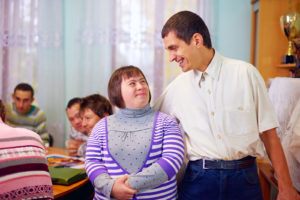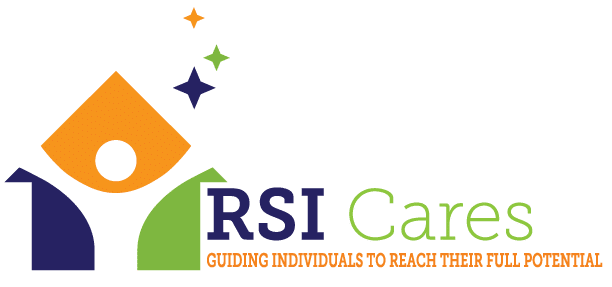How to Set Habilitation Goals for Someone with Down Syndrome

Down syndrome affects every individual differently because it’s a chromosomal disorder. Some people with Down syndrome need a little bit of extra help to master skills that help them to live independently and with other people. Setting goals for learning those skills ensures that your family member is able to make the progress she wants to make.
Evaluate What She Can Do Already
When setting habilitation goals, it’s important to assess what your family member can already do. Her existing skills can help her to achieve even more, but it’s important to have a beginning metric on which to build. Residential habilitation providers can help you to determine where the starting point is, so that you can develop appropriate goals.
Consider General Life Skills She Might Be Missing
You may also have some specific ideas about life skills that you know your family member needs to master. These types of skills are usually everyday skills that your family member will need to know in order to live independently. Some examples could be learning to dress herself, learning to make a simple meal for herself, or even mastering the steps of her bedtime routine.
Goals Might Be Personal or Social
The goals that your family member needs and wants to master could cover a wide range of different topics. Most of them will probably be personal goals, like tying her shoes on her own or replying to simple inquiries like, “What is your name?” Other goals might be more social in nature, allowing your family member to make friends and to get along with others much more readily. Some of these goals might involve regulating the volume of her voice or learning to start conversations appropriately.
Goals Will Shift as She Makes Progress
As your family member makes progress with her goals, they can adapt and shift. For instance, if one of her goals is to learn to get dressed on her own, the initial goal might involve dressing without physical help from someone else. As that goal gets mastered, she might move on to getting dressed without receiving any verbal prompts from anyone and finally getting dressed with no help from anyone else at all.
Residential habilitation services can help you to find other Down syndrome resources that you might need. It’s challenging for someone with Down syndrome to master all of the skills necessary for independent living, but with the right support it’s certainly possible.
If you are considering behavior behavior support management in Carmel, IN, please call the caring staff at RSI Cares. Serving Greater Indianapolis Area. Call for Immediate Info & Assistance: 317-471-0750.
- NOTICE: Indiana Direct Service Workforce Investment Grant - January 30, 2023
- Take a Break and Let Respite Care Aides Help Out - November 10, 2021
- Let Residential Habilitation Services Bring Independence to Your Child With Down Syndrome - October 20, 2021
